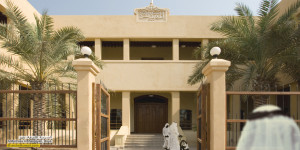



“A “joint high command” of Arab states is advising the Israeli Prime Minister Benjamin Netanyahu how to press home his ground operation in Gaza, the Debka Net Weeky, a publication of a website close to Israel’s foreign intelligence service Mossad has confirmed. The website said that Saudi Arabia’s King Abdullah and Egypt’s President Abdel Fattah al-Sisi are in “constant communication” running daily conferences and sometimes more, according to the website’s sources. That communication is done over secure telephone lines, but such is the political sensitivity of their close co-operation that for really important messages human couriers are used. A special Israeli plane is parked permanently at Cairo’s military airport, ready to lift off whenever top-secret messages between the Egyptian president and the Israeli Prime Minister need to be delivered by hand. The flight takes less than 90 minutes. King Abdullah’s point man in this daily dialogue is the man he dismissed as intelligence chief Prince Bandar bin Sultan, but who has now been re-hired as the King’s special adviser on the Islamic State in Iraq. Bandar maintains “direct contacts” with the Mossad chief Tamir Pardo….…………”
I would call it a coalition of convenience, not an alliance. It is like “the Good, the Bad, and the Ugly”, but I will not specify which one of these is which: it is probably a toss-up. It is really a coalition, if that is what it is, of two parties: Israel and the Saudi regime. Egypt has already made its peace with Israel and is doing its share in blockading Gaza and its Hamas rulers, and it has no regional influence left beyond that. Egypt under Al Sisi is now part of the Al Saud sphere of influence as far as other Middle East issues are concerned. Besides, Egypt is not directly involved with the main target of this coalition: Iran and her ruling mullahs.
This is quite a mix of an eclectic coalition of regimes, just look at its members:
- One militarized Jewish democracy (it is a democracy so far, if we set aside the West Bank’s future, and not only by Arab or Middle East standards),
- One harsh Arab military dictatorship led by a Generalisimo Field Marshal but pretending to be a democracy,
- One absolute tribal Wahhabi theocratic monarchy that has no pretensions of democracy or constitutional law whatsoever (its constitution is however the princes and their palace clerics interpret the law).
What brought them and holds them together? A mix of factors: (1) a desire to maintain the status quo and keep absolute family rule (Saudi Arabia and allies), (2) a desire to keep the military in absolute power and the old oligarchy in place while pretending otherwise (Egypt), (3) a desire to divide the Arabs and other neighbors and to weaken her main regional rival (that would be Iran in the case of Israel).
There is one other factor that sounds ridiculous but some Arab regimes pretend, for political reasons, to take it seriously: a professed media-driven fear of the spread of Shi’ism. This indicates a lot of religious insecurity within the sects of Islam. Saudi and other Gulf sectarian propaganda often warn of this threat of the ‘spread of Shi’ism’. Recently so have otherwise apparently calm but apparently Wahhabi-ized Egyptian clerics from within and without Al-Azhar. But I doubt the Jews of Israel worry much about this nonsense as much as their paranoid neighbors, perhaps excluding some remnant zealots in the settlements and around Jerusalem.
However, it would be fun if there was a true Shi’a threat of conversion in all three countries. Imagine a common threat to convert all Sunnis of Egypt, all Wahhabis of Saudi Arabia, and the toughest nut of all would be to convert all Jews of Israel (and hence of the Diaspora from New York to San Fernando valley).
Just think: they wouldn’t have to wait for the Second Coming and the Rapture to convert, although it would be to the wrong faith. That should give all Christian Zionists in the American Red-blooded States massive group infarct.
Cheers
Mohammed Haider Ghuloum
[email protected]













